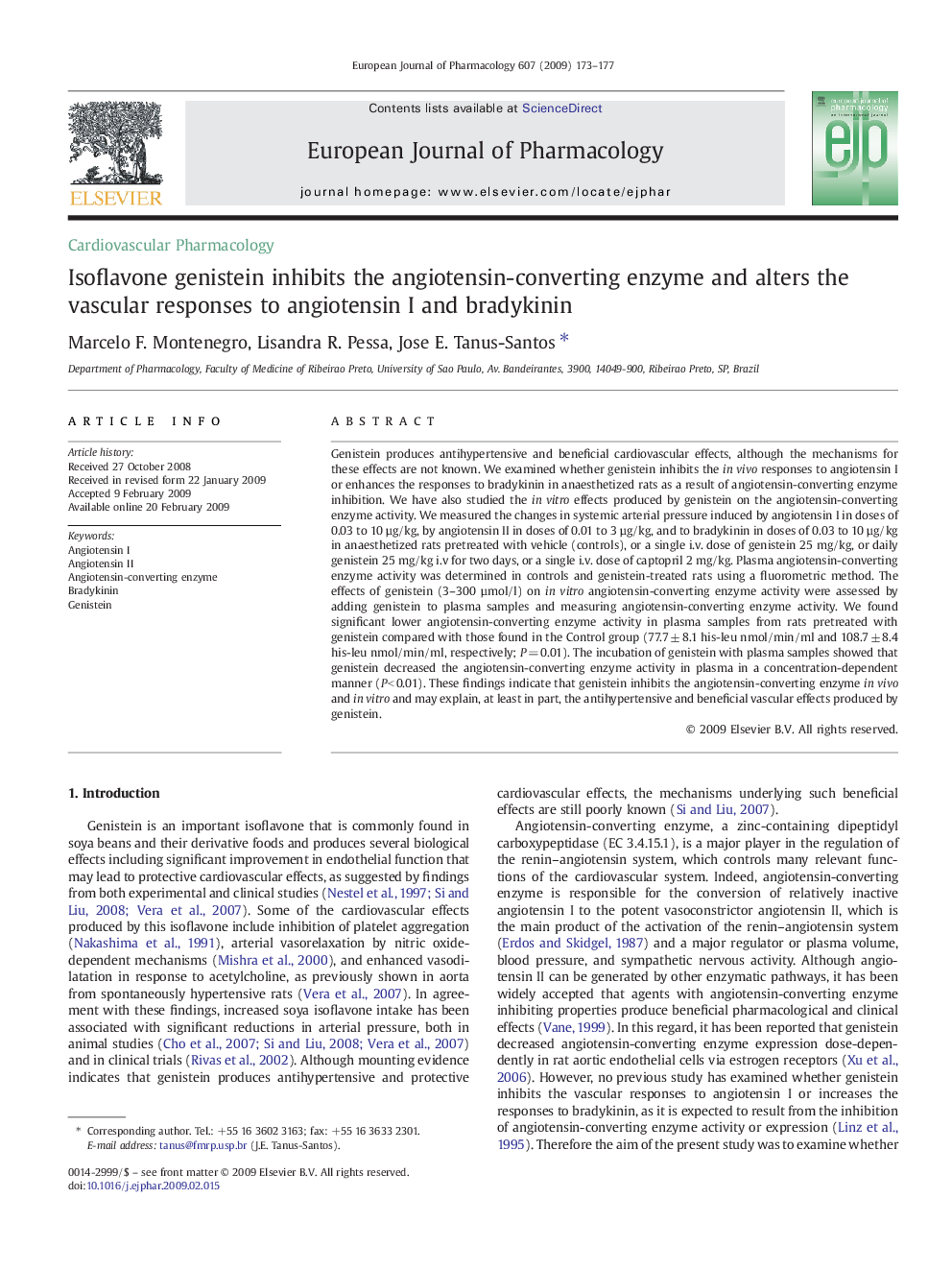| Article ID | Journal | Published Year | Pages | File Type |
|---|---|---|---|---|
| 2534452 | European Journal of Pharmacology | 2009 | 5 Pages |
Genistein produces antihypertensive and beneficial cardiovascular effects, although the mechanisms for these effects are not known. We examined whether genistein inhibits the in vivo responses to angiotensin I or enhances the responses to bradykinin in anaesthetized rats as a result of angiotensin-converting enzyme inhibition. We have also studied the in vitro effects produced by genistein on the angiotensin-converting enzyme activity. We measured the changes in systemic arterial pressure induced by angiotensin I in doses of 0.03 to 10 µg/kg, by angiotensin II in doses of 0.01 to 3 µg/kg, and to bradykinin in doses of 0.03 to 10 µg/kg in anaesthetized rats pretreated with vehicle (controls), or a single i.v. dose of genistein 25 mg/kg, or daily genistein 25 mg/kg i.v for two days, or a single i.v. dose of captopril 2 mg/kg. Plasma angiotensin-converting enzyme activity was determined in controls and genistein-treated rats using a fluorometric method. The effects of genistein (3–300 µmol/l) on in vitro angiotensin-converting enzyme activity were assessed by adding genistein to plasma samples and measuring angiotensin-converting enzyme activity. We found significant lower angiotensin-converting enzyme activity in plasma samples from rats pretreated with genistein compared with those found in the Control group (77.7 ± 8.1 his-leu nmol/min/ml and 108.7 ± 8.4 his-leu nmol/min/ml, respectively; P = 0.01). The incubation of genistein with plasma samples showed that genistein decreased the angiotensin-converting enzyme activity in plasma in a concentration-dependent manner (P < 0.01). These findings indicate that genistein inhibits the angiotensin-converting enzyme in vivo and in vitro and may explain, at least in part, the antihypertensive and beneficial vascular effects produced by genistein.
